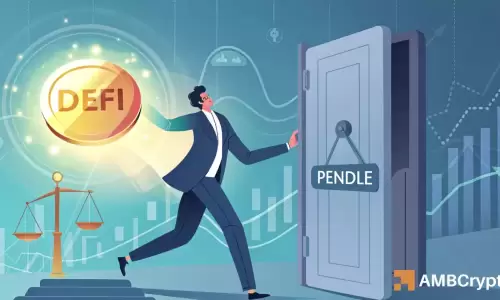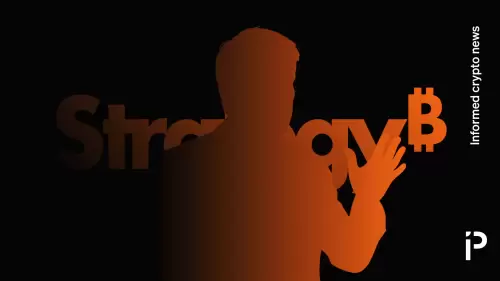 |
|
 |
|
 |
|
 |
|
 |
|
 |
|
 |
|
 |
|
 |
|
 |
|
 |
|
 |
|
 |
|
 |
|
 |
|
Cryptocurrency News Articles
GENIUS Act & Stablecoins: Navigating the Future of Digital Finance
Jun 20, 2025 at 05:00 pm
The GENIUS Act aims to regulate stablecoins, potentially boosting adoption. Hong Kong's stablecoin plans and Arizona's Bitcoin reserve bill add layers to the evolving landscape.
GENIUS Act & Stablecoins: Navigating the Future of Digital Finance
The digital finance world is buzzing! The GENIUS Act, Hong Kong's stablecoin initiatives, and Arizona's Bitcoin reserve proposals are shaping the future. Let's dive into the key developments.
The GENIUS Act: A Regulatory Milestone for Stablecoins
The GENIUS Act, recently passed by the Senate, represents a significant step towards regulating stablecoins in the United States. This bipartisan bill aims to establish a comprehensive federal framework for stablecoins, cryptocurrencies pegged to the U.S. dollar. Proponents believe the act will provide much-needed regulatory clarity, paving the way for broader adoption by major players like Walmart and Amazon.
The legislation addresses concerns regarding consumer protection and financial stability, mandating full 1:1 reserve backing for stablecoins and implementing Anti-Money Laundering (AML) compliance checks. Moreover, it restricts stablecoin issuers from using reserves for anything other than redemption and safe investments.
What It Means for the Future
If enacted, the GENIUS Act could revolutionize digital transactions. Imagine instant payments with minimal fees, directly from your digital wallet. Businesses could receive payments immediately, with records secured on the blockchain. Bank of America and JPMorgan Chase have expressed interest in stablecoins, signaling potential integration into traditional finance.
However, some critics, like Senator Elizabeth Warren, are wary of potential conflicts of interest, particularly involving former President Trump's crypto ventures. Despite these concerns, the bill enjoys broad support, driven by the belief that the U.S. cannot afford to lag behind in the rapidly evolving crypto landscape.
Hong Kong's Stablecoin Play: A Web3 Power Move
Hong Kong is also making significant strides in the stablecoin arena. Anni Group, in collaboration with Standard Chartered Bank and Hong Kong Telecom (HKT), is developing a Hong Kong dollar stablecoin, backed by the Hong Kong Monetary Authority (HKMA). This initiative aims to support Web3 applications, trade, and financial settlements.
The stablecoin is slated to launch after the Stablecoin Ordinance takes effect on August 1, 2025. It will leverage Anni Group's expertise in Web3, Standard Chartered's banking infrastructure, and HK Telecom's e-payment app, Tap & Go. The goal is to bridge the gap between traditional finance and the decentralized web.
Evan Auyang, President of Anni Group, envisions the stablecoin as a core settlement tool for public chain financial services, supporting cross-border trade, game asset purchases, and blockchain finance. Compliance is a key focus, with Anni Group aligning with KYC and AML norms.
Despite regulatory progress, challenges remain. Auyang emphasizes the need for ecosystem education and real-world use cases to drive mainstream adoption. He also points to global competition, particularly from the U.S. and the GENIUS Act, urging Hong Kong to foster globally competitive companies in the stablecoin space.
Arizona's Bitcoin Reserve Bill: A Bold Experiment
Arizona is exploring another facet of digital asset integration with House Bill 2324. This legislation seeks to create a Bitcoin and Digital Assets Reserve Fund, managed by the state and funded by confiscated criminal assets.
The bill has faced hurdles, including a previous failure in the House, but it has been revived and passed a Senate vote. If enacted, it would expand Arizona’s forfeiture laws to include digital assets, providing a legal framework for their seizure, storage, and sale. The state treasurer would administer the fund, with the option to invest in digital assets or related ETFs.
However, Governor Katie Hobbs has vetoed similar digital asset reserve bills in the past, raising doubts about the bill's ultimate success. Her concerns likely stem from the perceived risks and complexities associated with managing digital assets at the state level.
The Road Ahead
The GENIUS Act, Hong Kong's stablecoin project, and Arizona's Bitcoin reserve bill highlight the diverse approaches being taken to integrate digital assets into the financial system. While regulatory hurdles and adoption challenges persist, these initiatives signal a growing recognition of the potential of stablecoins and cryptocurrencies.
Whether it's the regulatory framework of the GENIUS Act, Hong Kong's Web3 ambitions, or Arizona's experimental reserve fund, the journey toward mainstream digital finance is underway. Buckle up, it's gonna be a wild ride!
Disclaimer:info@kdj.com
The information provided is not trading advice. kdj.com does not assume any responsibility for any investments made based on the information provided in this article. Cryptocurrencies are highly volatile and it is highly recommended that you invest with caution after thorough research!
If you believe that the content used on this website infringes your copyright, please contact us immediately (info@kdj.com) and we will delete it promptly.




























































